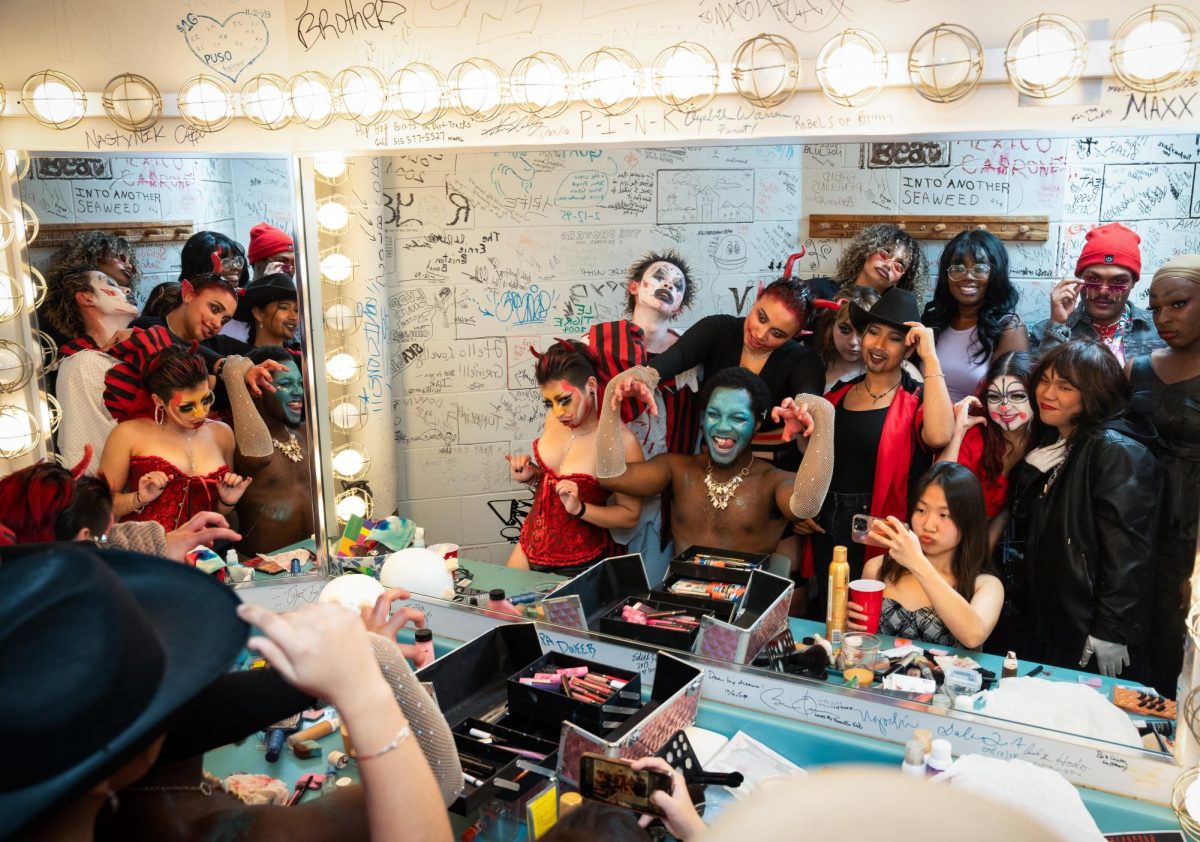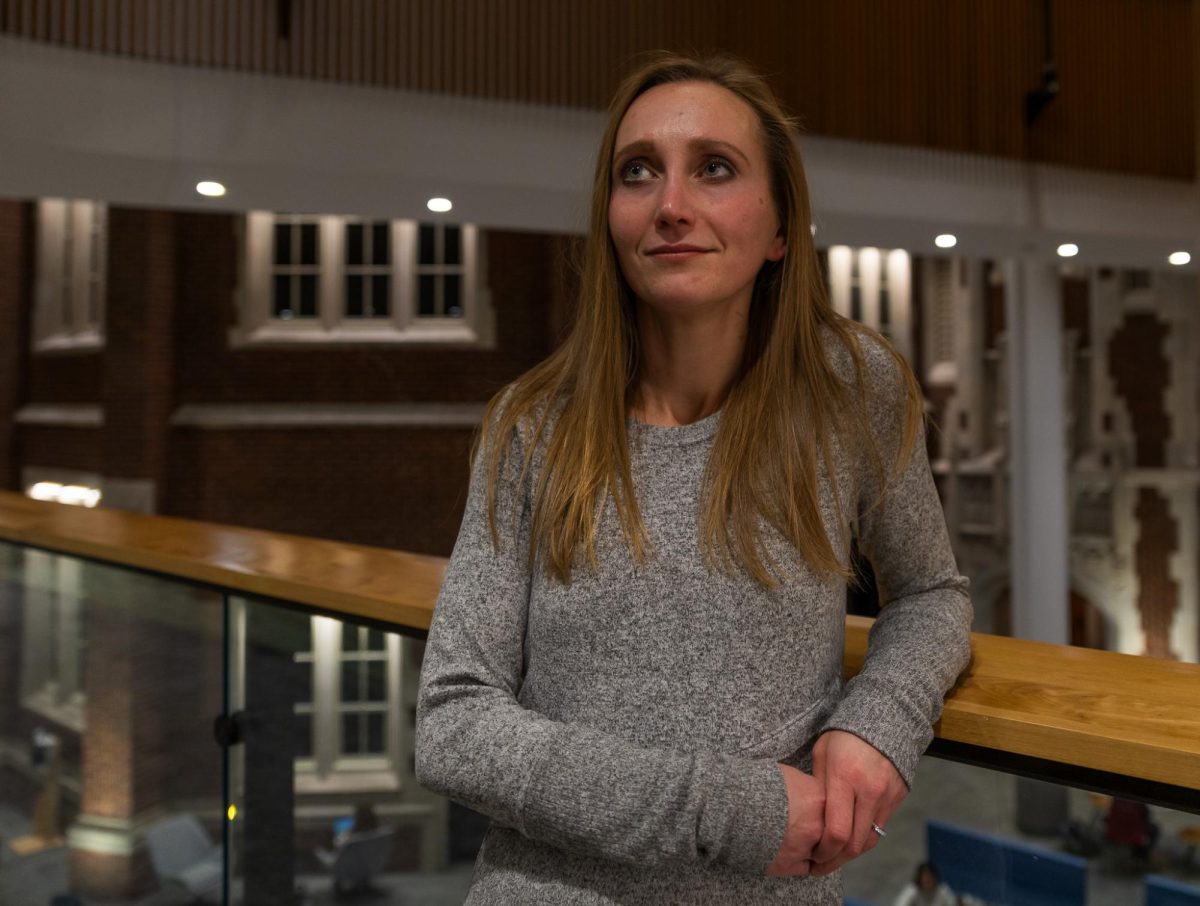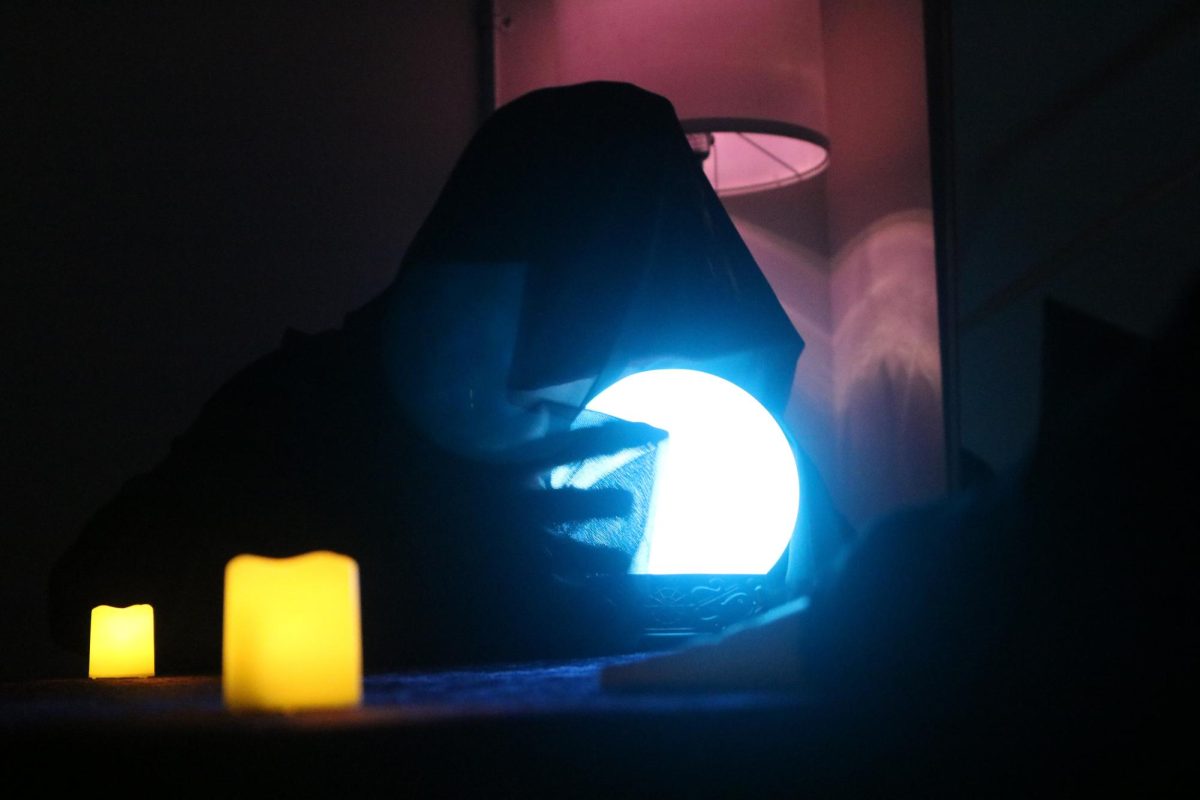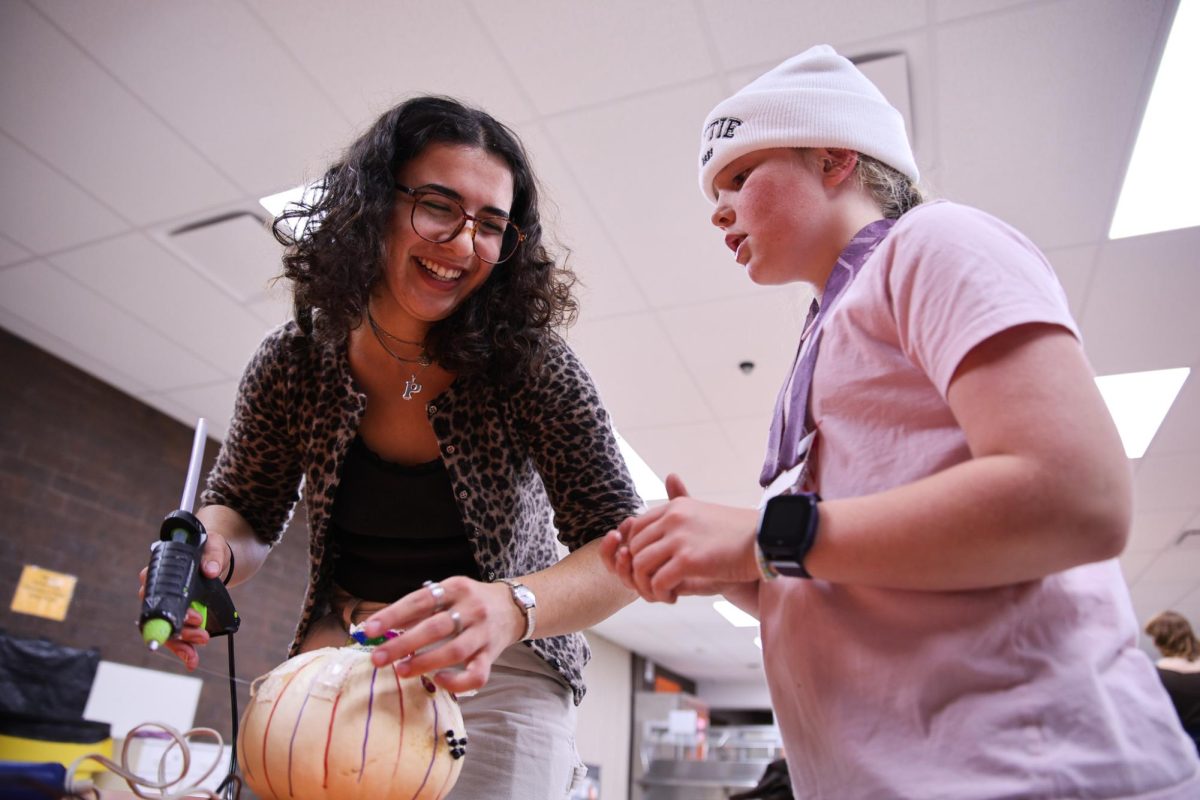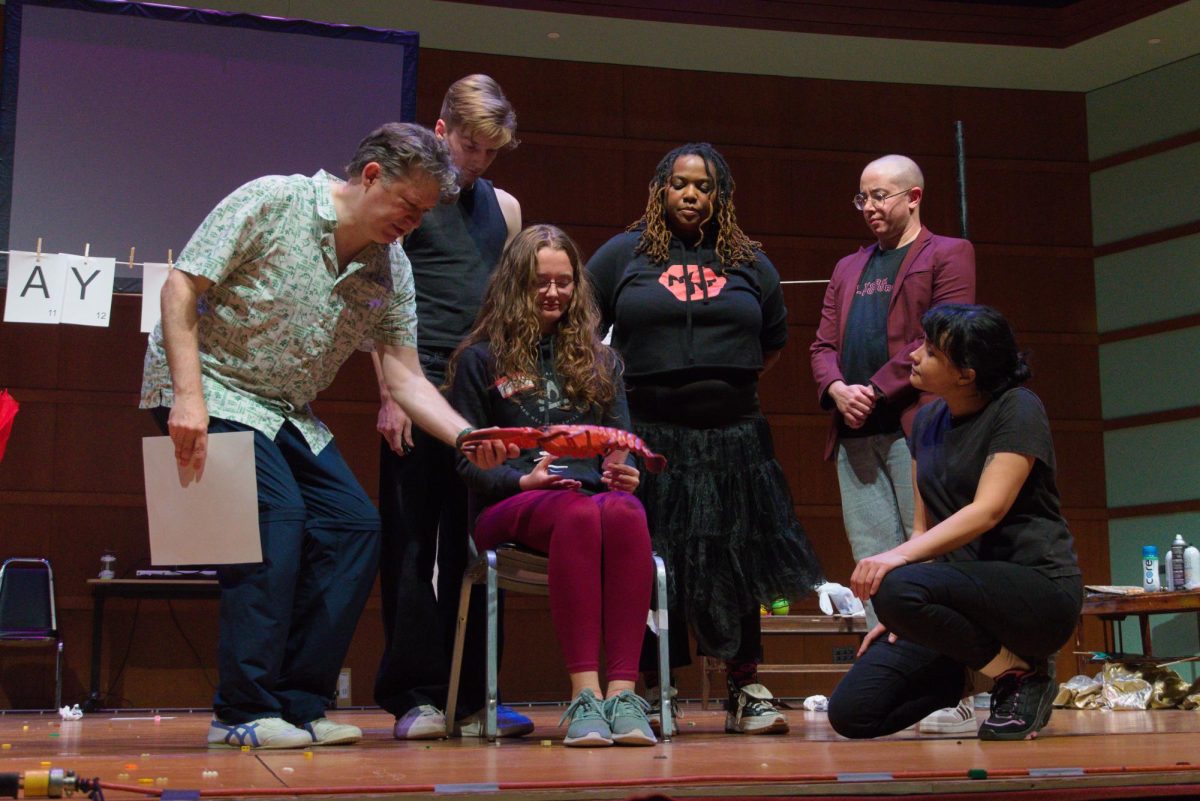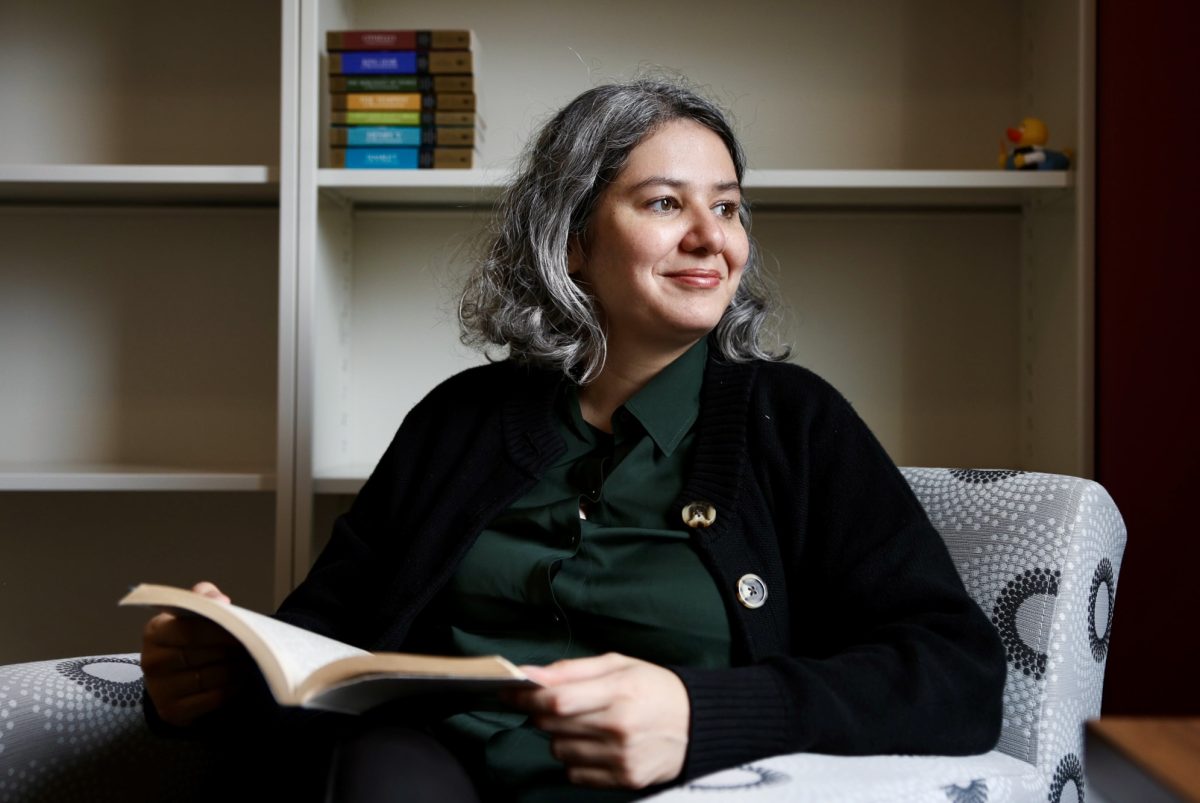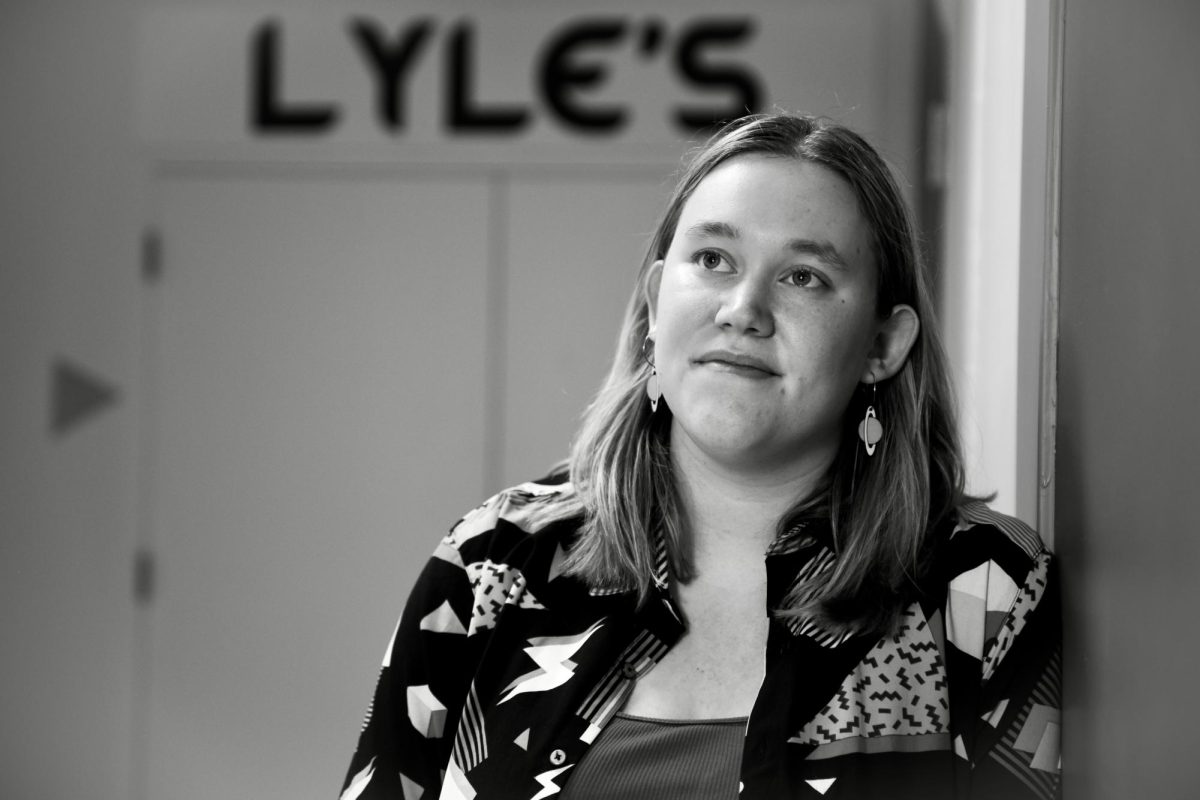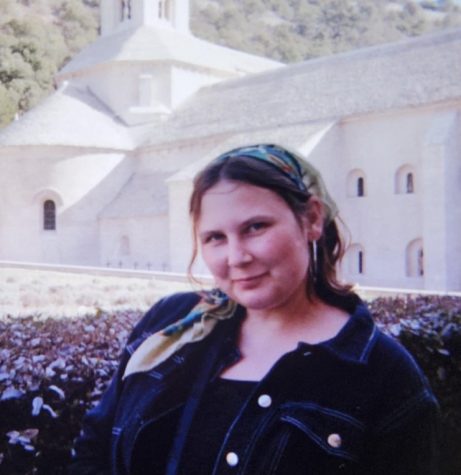“Project X” is making history at Grinnell College by being the first mainstage production with an entirely Black cast, Black director and Black playwright. The virtual show opening on March 19 is also the first mainstage production in the known history of the College to be directed by a student.
Professor Elaigwu Ameh, visiting assistant professor in the Theatre and Dance Department, wrote “Project X” during Black History Month 2021 as an episodic piece focusing on race in the United States. A devised performance, the script is made up of spoken word poetic pieces centered around the lived realities of Black people.
Malcolm Davis `21 originally thought he would act as assistant director on the production, but after hearing his interpretation of the work, Ameh was quick to advocate for Davis’ promotion to the Theatre and Dance Department.
A theatre and political science double major, Davis directed a one-act piece in Professor Craig Quintero’s directing seminar, but it was his experience with spoken word poetry that let him fully step into the role of “Project X” director. As a poet, he could give notes on poetic delivery and how to connect to a nontraditional theatrical piece.
The virtual production will contain a combination of recorded and live components. When asked if he had an online performance in mind while writing the piece, Ameh responded that he saw it as an opportunity to refresh the creative space rather than as a setback. “We know that there are different ways of embodying reality; being on stage and in person is just one of the ways,” he said.
Having Black students telling these stories of Black experience was critical to the integrity of the piece, but Davis wanted to emphasize what has been asked of the production’s actors beyond the traditional aspects of memorizing lines and embodying a character.
“Being a Black person, and constantly experiencing the trauma of that, and then taking the time out of your day to go to rehearsal and tap into those feelings, into those traumas, and then relive it for the audience is a difficult thing to do,” Davis said.
In 2018, Davis performed in what he considered to be the Blackest production at Grinnell before “Project X”: the student-directed “The Royale.” Continuing to explore the Black experience through theatre at Grinnell is important to Davis, and he hopes the BIPOC members of the audience can see themselves in the stories being shared on the screen. “Black audience members – we want them to feel heard, we want them to feel seen,” he explained.
Cast member Kenn Anderson `24 hopes her first theatre experience at Grinnell receives the attention it deserves considering the importance of its subject. “I just want [the audience] to take away we mean what we say. Just actually listen to what we have to say. Feel what we’re performing,” she said.
“We don’t want it to be a sort of dressed-up version of the Black experience that is going to be funny and positive, that is going to not push the audience to think about themselves,” Davis explained.
Black audience members – we want them to feel heard, we want them to feel seen. – Malcolm Davis ’21
The performances are designed to be jarring but delivered in an organic and genuine way aimed to trigger thoughts, emotions and reactions from the audience.
“A message I would like the audience to take from the work is the need to understand reality from the perspective of minority subjects,” said Ameh.
White audience members are encouraged to consider their own position in the stories unfolding on the screen, even if that means accepting discomfort and confronting difficult topics. By acknowledging their own role, white audience members can recognize how they may have committed microaggressions or contributed to the oppression of BIPOC and reevaluate how to act in the future.
“Some truths are difficult but if we face them in empathy, in understanding, we will have an understanding of our union, of our togetherness, within this community of humanity,” said Ameh.
While “Project X” provides a look into the lived experiences of Black people, it is not representative of the life of every Black person. “The Black experience is by no means a monolith; it is a plethora of experiences,” explained Ameh.
This search for a balance of inclusion and representation is embodied in the title of the piece. By choosing “X,” the variable so often used to represent the unknown, Ameh came as close as he could to express the impossibility of capturing the essence of the Black experience.
Some truths are difficult but if we face them in empathy, in understanding, we will have an understanding of our union, of our togetherness, within this community of humanity. – Visiting Assistant Professor of Theater and Dance Elaigwu Ameh
“I think that makes sense. To have ‘X’ as the name of this project – that we are trying to achieve a project that is at once important and yet elusive to categorization,” he said.
A talk-back session will be held on Zoom following the first livestreamed performance which begins at 7:30 p.m. CST on March 19.



